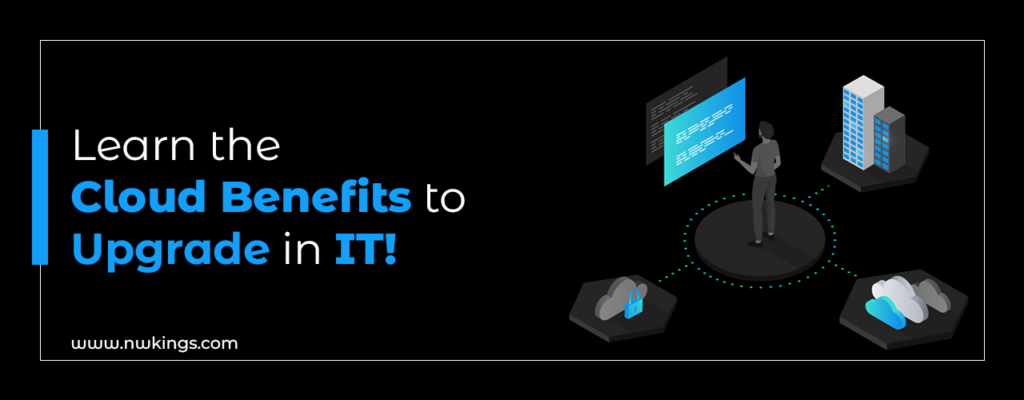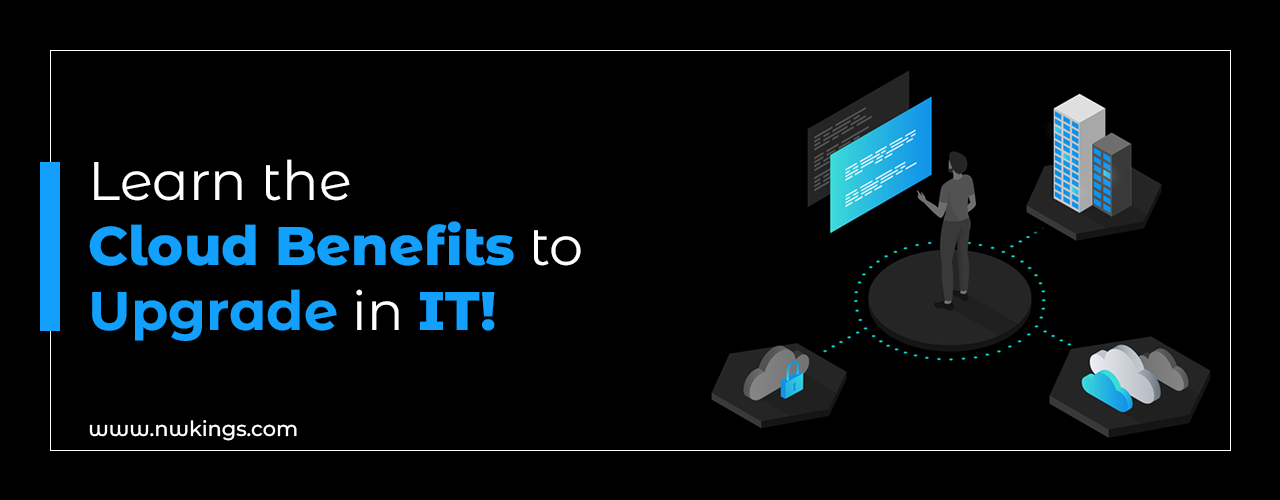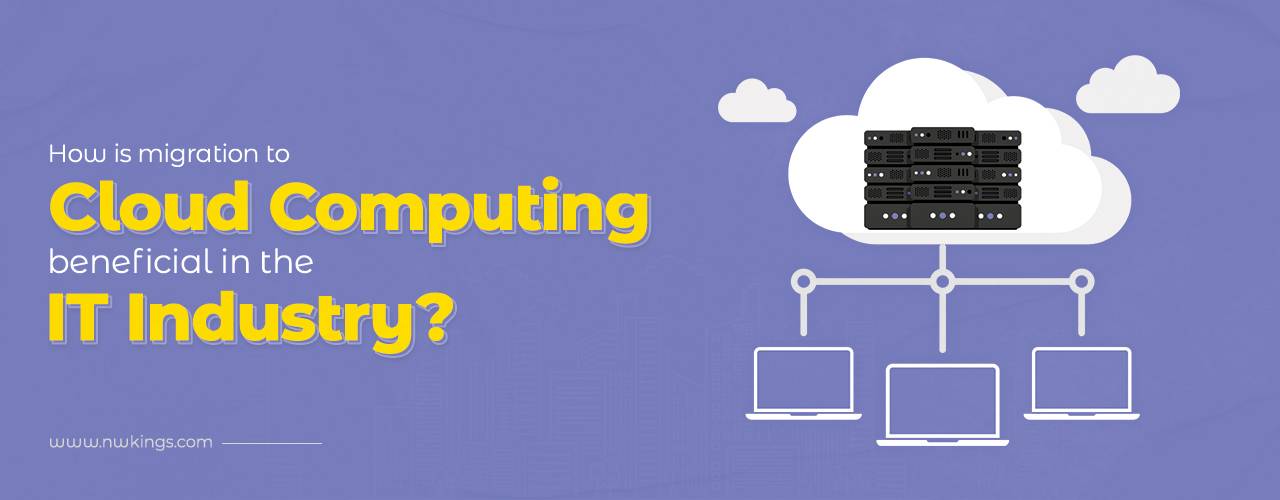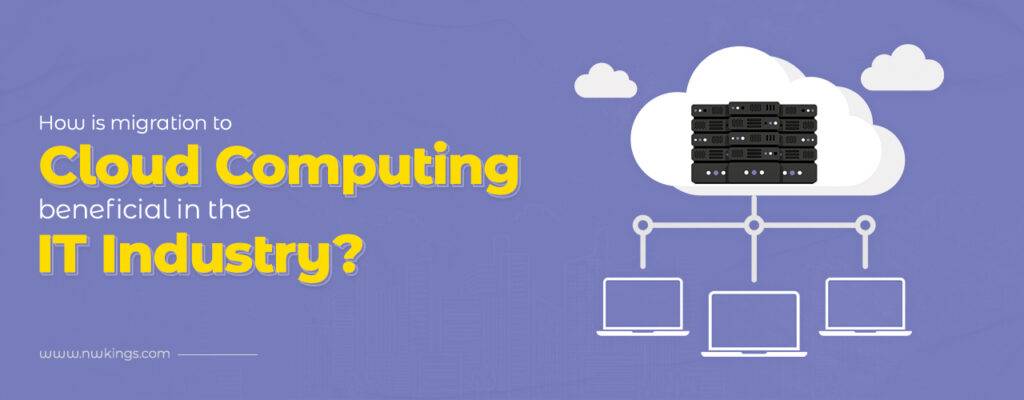
Cloud computing is one of the high-demand courses in the information and technology industry in the world. The high demand for managing and accessing data online has enhanced the value of cloud computing certifications in the job market. If you are also looking for an opportunity to explore the world of cloud computing and want to know about the advantages of cloud computing in your career development, then this blog is for you.
So, in this blog, we will learn about cloud computing, its concepts, certifications, training courses, exams and incompatible advantages of cloud computing. Therefore, continue to read the blog till the end.
What is the Cloud Computing?
In general words, Cloud computing is the practice of accessing and managing data and software systems online. Cloud computing helps to make data backup, disaster recovery, and business continuity less expensive in the market.
What is the need for Cloud computing?
The need for Cloud computing is emerging from the increasing and managing demand for data and system softwares online in the market. Given below are the key points which justify the need for Cloud computing:-
- To Manage Data and Software:- The need for cloud computing has emerged to manage high-storage data and softwares of businesses, enterprises or companies. Therefore, cloud computing emerged as a boom in the information and technology industry in the market.
- To Access Data Easily:- Cloud computing allows users to access data quickly. One can access data anywhere at any time. Therefore, Cloud computing has increased the accessibility of data for corporations, businesses and companies all around the world.
- Data Storage:- Cloud computing helps companies, businesses, and organizations to store data on online platforms easily. Therefore, it becomes easy to access, store and process any data and softwares on the Internet.
Hence, the above points clearly state the need for Cloud computing in the market.
What is the scope of Cloud computing Certification?
The scope of Cloud computing certification in the industry is very high and promising. A candidate can easily access the number of employment opportunities after completing a certification course in Cloud computing available in the market. Currently, the average pay scale of a Cloud computing engineer in India ranges between 5 Lakh to 7 Lakh per annum.
Overall, Cloud computing is a permanent and developing technology. Businesses must adopt this technology and advance along with it. The technology is impressive and motivating. In the long run, many enterprises—large and small— industries will find cloud computing a cost-effective method of carrying out services.
What are the advantages of Cloud computing?
The incompatible or uncountable benefits of one of the highly growing domains of the information and technology industry are as follows:-
- Backup and Restore Data:-
One of the main advantages of cloud computing is that it allows users to back up or restore any deleted data or files effortlessly. Therefore, cloud computing has made restoring data much easier than before.
- Low Maintenance Cost:-
Reduced infrastructure and maintenance costs are the other advantage of Cloud Computing. Businesses, enterprises and companies get a lot of benefits after the emergence of Cloud computing in the market.
Cloud computing helps companies to reduce their maintenance costs on infrastructure like setting up and managing, and accessing data systems and softwares in the companies. Therefore, Cloud computing has endless benefits which enable them to grow on a large scale in the market.
- Streamlined IT Management and Maintenance:-
Cloud computing helps to maintain centralized management of infrastructure and applications and automatic software updates and patch management in a company. Cloud computing also helped to reduce IT burdens and simplified maintenance processes in IT companies. Hence, It is considered a valuable advantage of Cloud computing in the market.
- Innovation and Flexibility:-
One of the other incompatible advantages of Cloud computing is that it helps in the fast arrangement of new services and applications in companies. The experimentation and testing of new ideas have become easier with the emergence of cloud computing technologies in the industry.
- Environmental Sustainability:-
Cloud computing helped to reduce energy consumption and carbon footprint in the IT industry. Therefore, Environmental Sustainability (Green initiatives by cloud service providers) is also one of the other advantages of Cloud computing.
- Mobility:-
Cloud computing allows users to access data and services through mobile phones, smartphones, tabs, laptops, etc. Therefore, mobility in using data enhanced the value of cloud computing in the market.
- Data Security:-
Cloud computing helps to protect data and softwares from malicious hackers in the market. Cloud Security Specialists are the professionals who manage to secure data and softwares from hacking in a company.
- Unlimited Storage Capacity:-
Cloud computing enables users to store Unlimited data online and provides Unlimited storage facilities in a company. Therefore, we can say that cloud computing helps to impart several benefits to processing and managing data in a company.
What is the widespread adoption of cloud computing?
To understand the widespread adoption of cloud computing, let us first understand the meaning of Cloud Adoption.
Cloud Adoption:- It is a systematic movement by corporations to decline costs, mitigate risk and achieve the scale of database capabilities in the IT industry. Cloud Adoption depends on various degrees of a company, depending on the profoundness of adoption.
Widespread Adoption of Cloud Computing:-
Despite the benefits of Cloud Computing, many organizations face crucial concerns like security, compliance, and geography that make it problematic to shift data or workloads into the public cloud. In expansion, businesses struggle to lure and retain skilled personnel to migrate, run, and control their cloud infrastructures.
When making the first step into cloud computing, organizations should ensure that their staff is ready to transition to the cloud and examine their business needs before proceeding to a complete risk assessment and project scope. A smooth migration strategy can lay the groundwork for a robust and adaptable company. With the help of cloud consultancy experts, companies can make their cloud adoption journey hassle-free with a state-of-the-art cloud infrastructure that enables application deployment and scale from anywhere, anytime.
What is the Pay-as-you-go pricing model of cloud computing?
Given below is a detailed explanation of the Pay-as-you-go pricing model of cloud computing:-
In general terms, Pay-as-you-go cloud computing (also known as PAYG cloud computing) is a payment method for cloud computing that charges based on the usage of cloud computing resources. The process is similar to that of utility bills, using only resources that are required.
Benefits of Pay-as-you-go Cloud Computing:-
One main advantage of the Pay-as-you-go model, which is a form of consumption-based pricing, is that there are no wasted resources in the market.
- High Scale of Resources:- Cloud service providers can deliver enormous resources to drive almost any size workload or computing demand, such as big data analytics and other projects. Those resources can then be released when work is complete or whenever the order of the industry changes.
- Cost-Efficient:- The mixture of scalability and support for engaged situations can make PAYG cloud computing more cost-effective than traditional data centre computing. Therefore, this is one of the other advantages of the PAYG model of Cloud Computing.
- Ease of Use:- A cloud developer or expert can adjust resources with a few clicks or even configure some resources to adjust automatically as workload demands change in real time. This ease has played an important role in cloud adoption in the IT industry.
- Right-Sizing Resources:- The confronts of customary computing infrastructure led to massive waste due to over-provisioning. PAYG cloud computing makes resources easy by minimizing overprovisioning.
Types of Pay-as-you-go Cloud Computing Services:-
Subscription-based payment model:-
A subscription is typically the most familiar and standard PAYG payment model. PaaS and SaaS offerings frequently use a subscription model like cloud storage or Microsoft Office 365.
Pay-as-you-use payment model:-
The pay-as-you-use payment model is a recent expression of the PAYG model, where cloud users pay only for the resources utilized or for completing actual work. Function as a service is a famous example of this model.
Users pay for the operational resources, such as servers and storage, only while the function is – often to the nearest second or fraction of a second. Therefore, It is considered one of the most common types of the PAYG model.
Pay-as-you-go payment model:-
The Pay-as-you-go payment model is one of the most common types of the PAYG model. It enables users to pay only for the resources which are working or operational in the market. For example, if a cloud user provisioned a VM instance, users will pay for that VM each month for the duration of that allocation. However, this model doesn’t consider utilization – it doesn’t matter whether the company is running anything on those allocated resources.
How cloud has enhanced the accessibility and mobility of services?
Cloud computing has enhanced the accessibility and mobility of services in numerous ways. Given below are the details of how cloud computing has increased the accessibility and mobility of services:-
- Cloud computing allows an end user to access data and applications anywhere and anytime. Therefore, it’s considered one of the main advantages of Cloud Computing.
- Cloud computing Support for remote work and collaboration and Cross-platform compatibility to its users in the industry.
How has cloud computing increased data storage and backup systems?
Cloud computing has increased data storage and backup systems in the following ways:-
- Unlimited Storage Capacity:- Cloud computing enables companies, businesses, and enterprises to store Unlimited data and system softwares online. Therefore, companies or enterprises can use unlimited storage capacity offered by Cloud computing resources to access or archive previous years’ data.
- Automated Data Backups and Disaster Recovery:- Cloud computing helps to back up data and software systems automatically. It also enables us to manage crises like hacking and harm to system softwares in the industry.
- Data Redundancy and Fault Tolerance:- Cloud computing helps to alter and analyze faults in the system softwares that help cloud engineers to protect the data from getting hacked in the industry.
What are the top Cloud Computing courses in the Industry?
The certification courses in Cloud computing are as follows:-
- Amazon Web Services (AWS) Associate is a beginner-level certification course which helps to enhance an individual’s knowledge of the concepts of Cloud computing in the market.
Eligibility Criteria:-
The eligibility criteria to apply for the AWS Associate level certification course are as follows:-
- A candidate must have a graduate degree in the field of engineering.
- A candidate should have some basic knowledge of the IT industry.
- A basic understanding of Amazon is also required to apply for the AWS Associate certification course.
- A basic understanding of cloud services is also mandatory.
- Knowledge of the fundamentals of Infrastructure management and building is also necessary.
- Amazon Web Services DevOps is a highly technical certification course which helps an individual to enhance one’s knowledge of provisioning, operating, and managing distributed application systems on the AWS platform.
Eligibility Criteria:-
Below-discussed are the eligibility criteria to apply for the AWS DevOps certification course:-
- A candidate should have completed graduation in engineering.
- A candidate should also have some basic understanding of the IT industry.
- A candidate should also have some basic understanding of Amazon.
- Basic knowledge of Cloud Services and Networks is also preferred.
- The Fundamental knowledge of Infrastructure management and building is also necessary.
- Microsoft Azure is also a technical certification course which helps to provide knowledge on distinct ranges of Cloud Services like computing, analytics, storage, and networking.
Eligibility Criteria:-
Below-discussed are the pre-requisites to apply for the Microsoft Azure certification course:-
- One should have completed a bachelor’s degree in the field of engineering.
- A basic understanding of Microsoft is also required to apply for the Microsoft Azure certification course.
- A candidate should also have some basic knowledge of virtualization.
- Fundamental knowledge of Cloud management and building is also required.
- (Google Cloud Platform) is also an advanced-level certification course that helps to provide knowledge and skills on designing, implementing and managing Google Cloud products in the market.
Eligibility Criteria:-
Below-discussed are the main requirements to apply for the GCP Cloud certification course:-
- Graduation in engineering is mandatory to apply for the GCP Cloud certification course.
- A basic understanding of the IT industry will help a candidate to learn technical skills effortlessly.
- A basic understanding of cloud computing is also required.
- A candidate needs to have some basic understanding of deploying services.
- Fundamental knowledge of Google is also required.
- Docker and Kubernetes are one of the popular and newest trending certification courses available to upgrade professional skills required in the industry. Docker training helps to provide knowledge on software development tools for creating, sharing, and running individual containers in the market. On the other hand, Kubernetes training is a system for operating containerized applications at scale in the IT industry.
Eligibility Criteria:-
The eligibility to apply for the Docker and Kubernetes certification course are as follows:-
- A candidate should have a graduate degree in the field of engineering.
- A basic understanding of the IT industry is also required.
- Basic knowledge of installing and configuring applications is also required.
- A candidate should have some basic information on the concepts of Virtualization and Linux of cloud computing.
- A candidate should also have some basic information on the fundamentals of Cloud management.
Therefore, above are the top certification courses available in one of the main domains of the information and technology industry in the market. A certification in any of the above-discussed Cloud computing courses can help you to enhance your profile’s value in the job market.
What are the exam details of the Cloud computing certifications?
The exam details of the top-level certification courses in Cloud computing are as follows:-
- AWS Associate:-
Exam Name:- AWS Certified Solutions Architect – Associate exam (SAA-C02)
Exam Code:- SAA-C02
Exam Level:- Associate
Exam Duration:- 130 minutes
Total Questions:- 65 (multiple choice and multiple response questions)
Exam Cost:- 150 USD
Passing Score:- 720 out of 1000
Exam Language:- English, French, German, Italian, Japanese, Korean, Portuguese, Chinese and Spanish
Testing Center:- Pearson Vue
- AWS DevOps:-
Exam Name:- AWS Certified DevOps Engineer Professional exam
Exam Code:- DOP-C01
Level:- Professional
Exam Cost:- 300 USD
Exam Format:- Multiple Choice or Multiple Response questions
Total Questions:- 75 questions
Passing Score:- 750 out of 1000
Exam Duration:- 180 minutes
Languages:- English, Simplified Chinese, Korean, and Japanese
Testing Center:- Pearson Vue testing centre or online proctored exam
- Microsoft Azure:-
Exam Name:- Microsoft Azure Administrator
Exam Code:- AZ-104
Exam Cost:- USD 165
Exam Format:- Multiple-choice questions
Total Questions:- 40-60 questions
Passing Score:- 700/1000
Exam Duration:- 150 minutes
Languages:- English, Japanese, Chinese, Korean, Spanish, French, German, Italian, Indonesian
Testing Center:- Pearson VUE
- GCP Cloud:-
Exam Code:- GCP-ACE
Exam Cost:- USD 125
Number of Questions:- 50
Test Format:- Multiple Choice
Duration:- 120 Minutes
Passing Score:- 70%
Which is the best place to enroll for cloud computing training?
Candidates who want to pursue their dreams in cloud engineering should go for a certification course available in the market. Certification courses in Cloud computing are available in both online and offline modes.
The best place to enroll for a certification course in Cloud computing is Network Kings. It is one of the famous and emerging ed-tech platforms which provides live interactive sessions with pre-recorded videos to the students. They also have the availability of virtual labs that an individual can access 24 by 7 with zero downtime.
Why choose Network Kings?
Below-discussed are the key points which will tell you why to choose Network Kings for cloud computing certification courses:-
- Industry Experts:- Network Kings provides training from industry experts that help an individual learn about the industrial environment before entering the real world of technology.
- Live Interactive Classes:- Live Interactive Classes help an individual to understand the concepts quickly. Candidates are allowed to clarify their doubts during the live sessions.
- Pre-Recorded Videos:- A candidate will get access to pre-recorded videos of the live sessions of the certification course for which one has enrolled.
- Updated Curriculum:- A student will learn from the updated syllabus, which will help them to prepare for any certification exam efficiently.
- Access To Labs:- A candidate will get hands-on experience by accessing virtual labs with zero downtime in the market.
What are the job options available after completing Cloud computing courses?
The professional development opportunities which a candidate can get after completing a certification course in cloud computing are as follows:-
- Cloud Architect
- Cloud Engineer
- Cloud Developer
- Cloud Operations Manager
- Cloud Security Engineer
- Cloud Consultant
- Cloud Project Manager
- Cloud Business Analyst
- Cloud Sales Executive
- Cloud Support Engineer
- Cloud Migration Specialist
- Cloud Data Engineer
- Cloud DevOps Engineer
- Cloud Integration Specialist
- Cloud AI/ML Engineer
- Cloud Database Administrator
- Cloud Network Engineer
- Cloud Compliance Specialist
- Cloud Infrastructure Manager
- Cloud Automation Engineer
What is the expected salary after the cloud computing courses?
The expected salary that a candidate can get after completing a certification course in cloud computing is as follows:-
- United States: USD 80,000 – USD 180,000 per year
- Canada: CAD 70,000 – CAD 125,000 per year
- United Kingdom: £45,000 – £90,000 per year
- Germany: €50,000 – €100,000 per year
- France: €45,000 – €80,000 per year
- Australia: AUD 90,000 – AUD 150,000 per year
- Japan: ¥6,000,000 – ¥12,000,000 per year
- Singapore: S$ 70,000 – S$ 150,000 per year
- United Arab Emirates: AED 180,000 – AED 360,000 per year
- India: INR 800,000 – INR 2,500,000 per year
- Brazil: R$ 120,000 – R$ 240,000 per year
- Mexico: MXN 620,000 – MXN 1,050,000 per year
- South Africa: ZAR 300,000 – ZAR 720,000 per year
- Nigeria: NGN 4,500,000 – NGN 8,500,000 per year
- Russia: RUB 1,800,000 – RUB 3,600,000 per year
Conclusion!
In this blog, we have covered the details on the topics of cloud computing with the advantages of cloud computing, certification courses available in cloud computing, and exam details of the certification courses of cloud computing. If you also want to explore the world of cloud computing, you must go for a certification course in the same field.
Stay Tuned! for more such interesting and informative blogs.
Enjoy Learning!




